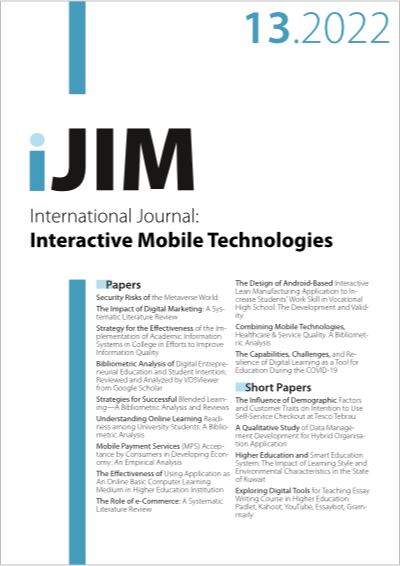The Capabilities, Challenges, and Resilience of Digital Learning as a Tool for Education During the COVID-19
DOI:
https://doi.org/10.3991/ijim.v16i13.30909Keywords:
digital learning, digital platforms, resilience, educational institutes, online learningAbstract
The current study's objective examines contemporary advancements in learning utilizing digital technology for educational purposes during the recent pandemic outbreak. The study analysed the challenges, capabilities, and resilience of these digital learning environments and the future of digital learning. The PRISM statement is used to select records and assess the final 37 studies for the current investigation. According to the findings, the COVID-19 pandemic posed a significant challenge to educational institutions, and online learning was a challenging work for students and teachers. The availability of a large number of digital learning platforms, on the other hand, considerably mitigates the problem. Students' and teachers' skills and capacities have grown as a result of the learning process utilising digital platforms. The current study's findings show that education in the post-COVID-19 era is heavily reliant on digital sources, and that new technologies greatly enhance the learning process.
Downloads
Published
How to Cite
Issue
Section
License
Copyright (c) 2022 Muhammad Yasir, Abrar Ullah, Muhammad Siddique , Zeeshan Hamid , Nohman khan

This work is licensed under a Creative Commons Attribution 4.0 International License.



